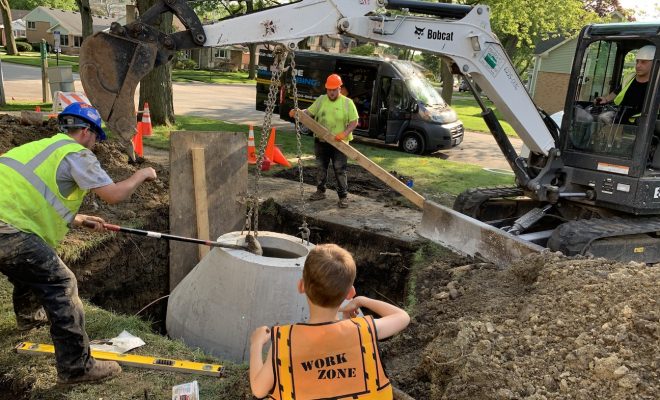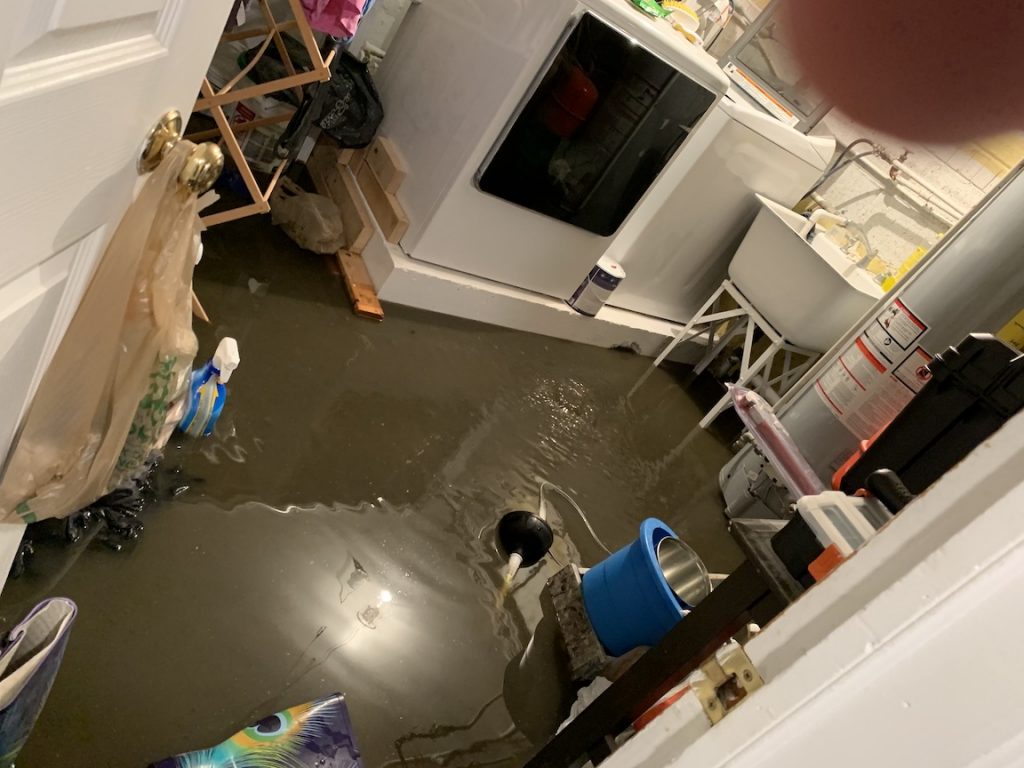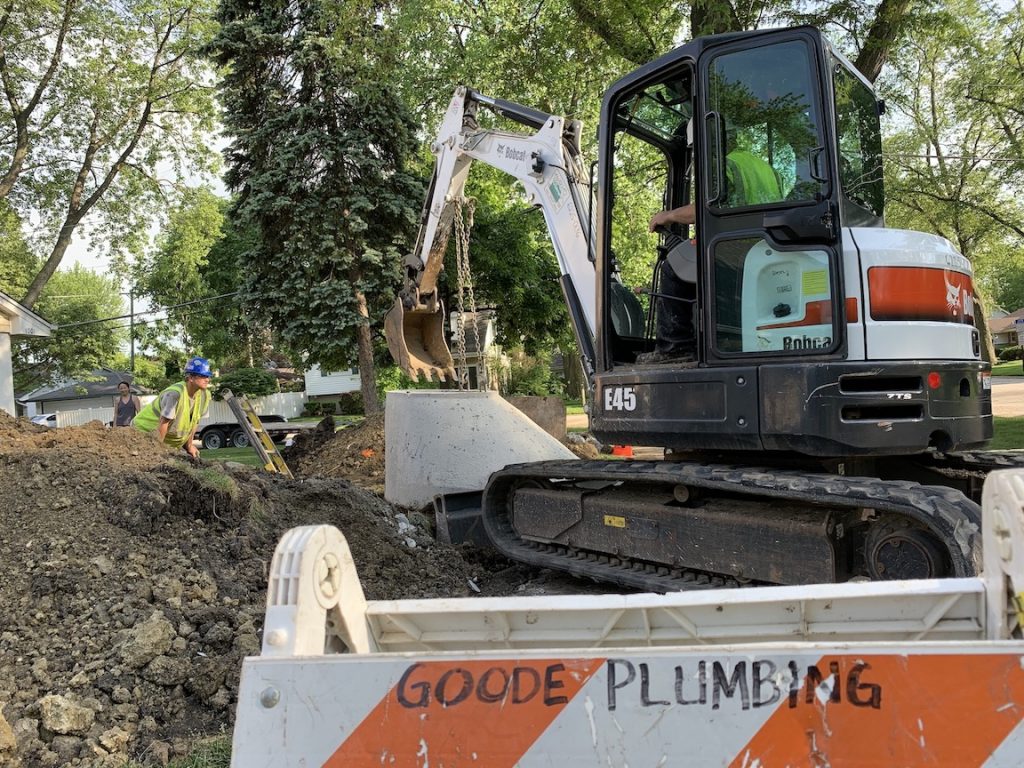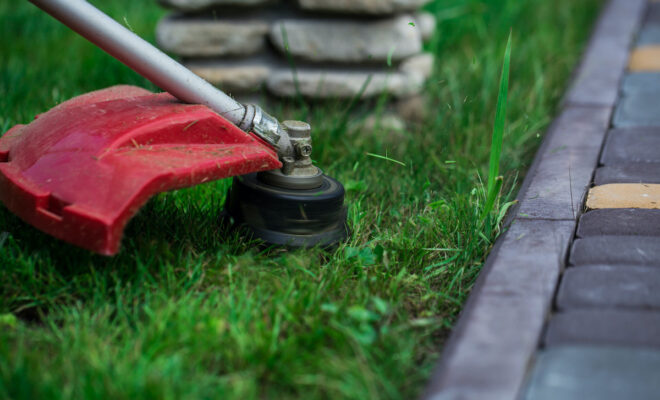Q&A with Mike Goode, owner of Goode Plumbing, about the growth of his business and how to prevent basement flooding in Park Ridge

By Trent Modglin
This spring, after watching Park Ridge city sewer water back up into our house (not once, but twice) and destroy a newly renovated basement during heavy rainstorms, we decided to do our research and hire Goode Plumbing to install a flood-control system in our yard. Coming away impressed with their work, we sat down with owner Mike Goode for his thoughts on the business and bringing relief to concerned homeowners.
Q: Can you tell us a bit about the history of your company?
A: I started in the industry at the age of 19, in 1993, when I went to work for a friend’s father. I apprenticed under him, and went to trade school in the evening. I owned a small two-man operation for several years, which I eventually sold. I moved to Phoenix and worked for a very large plumbing, HVAC and electrical service company there. Upon moving back to the Chicago area, I started Goode Plumbing in the fall of 2006 with just myself, and now we are currently just shy of 30 employees. Since the start of Goode Plumbing, my goal has always been to provide the best experience for both employees  and clients. We are regularly learning how to do things better, safer and more efficient. Our workmanship is warranted for life to be free from defects, so quality is something I really believe in, not just say. We have a great team that works very well together, cares about the company and our clients, and is very supportive of one another.
and clients. We are regularly learning how to do things better, safer and more efficient. Our workmanship is warranted for life to be free from defects, so quality is something I really believe in, not just say. We have a great team that works very well together, cares about the company and our clients, and is very supportive of one another.
Q: What are some of the more common issues people in Park Ridge and the surrounding area have to deal with?
A: We see a wide variety of issues, such as water heater failures, older piping systems in need of replacement, clogged drains, fixtures that are either worn out or of low quality. I do see a larger issue of flooded basements in Park Ridge than in many other areas that we service. This can be from lack of a flood-control system of some kind, lack of a drain-tile system or a sump-pump failure. We encourage residents to install a high-quality dual pump system, so if a pump fails or there is a power outage, you are still covered. Often, we find homes with systems in place (flood controls, pump systems, etc.) that use low-quality components or were not installed well.
Usually a flood control is installed after a stressful situation … we have seen many very nice basements ruined or heavily damaged by flooding issues. That is why we do not do anything second rate.
Q: After suffering through two city sewer backups this spring, my family witnessed firsthand how impressive your flood-control system is. Tell us how it works and what it prevents.
A: Thank you. I am confident that we have the best flood-control system on the market. A flood-control system is usually installed it the front yard, though we do install them in basements if that is a better option depending on the situation. Your home’s main drain, which becomes the sewer five feet downstream of the foundation wall, connects into the municipal sewer system. When the municipal sewer system becomes filled beyond capacity during a heavy rain, that sewage starts to back up into the private sewer lines, and if it is bad enough, into the private drain system and into your basement. To keep this sewage water out of your basement, we install a flood-control system.
This consists of a large enclosure below ground, typically in the front yard. We install two backwater valves in the private sewer lines. These allow water to drain out, but they have doors that close when water is backing up from the municipal  sewer, which keeps the water from backing up into your line. We do two backwater valves should one fail or get stuck partially open — which is extremely unlikely, but we want to make sure you are protected. There is an overflow fitting behind the valves, so any water from your house drain (toilet, shower, dishwasher, etc.) will spill out of this fitting and into a basin that houses an ejector pump. The pump will then send this outgoing drainage past the backwater valves.
sewer, which keeps the water from backing up into your line. We do two backwater valves should one fail or get stuck partially open — which is extremely unlikely, but we want to make sure you are protected. There is an overflow fitting behind the valves, so any water from your house drain (toilet, shower, dishwasher, etc.) will spill out of this fitting and into a basin that houses an ejector pump. The pump will then send this outgoing drainage past the backwater valves.
Every component in our system is of very high quality. We use cast-iron bodied backwater valves, the pump is heavy-duty cast iron with a minimum three-year warranty in a standard residential application. We install a separate discharge fitting to further improve our system’s performance and reliability and make future servicing easier and more cost effective.
We use pre-cast enclosures whenever possible for a more structurally sound, water-tight and professional installation. Our discharge piping is metal — copper and brass in this case — with a brass check valve. We also install a cleanout for easier future drain maintenance. We pull permits for our work, so it is inspected by an independent agency to ensure it was done properly for you. There are options such as super-duty pumps and backup systems as well.
Q: Describe the feeling of seeing the relief on customers’ faces when you’re wrapping up a job.
A: We love seeing a customer happy. Having workers dig up your basement floor or front yard is pretty invasive. We do our best to minimize the interruption. Usually a flood control is installed after a stressful situation; we have seen many very nice basements ruined or heavily damaged by flooding issues. That is why we do not do anything second rate. We love hearing from clients who tell us after a very heavy rain that our system kept their basement dry.
Q: In three words, describe Goode Plumbing.
A: Happy, integrity, progressive.
For more information on Goode Plumbing or to get a quote, call 773-295-7773 or visit GoodePlumbing.com and tell them The Real Park Ridge sent you.













